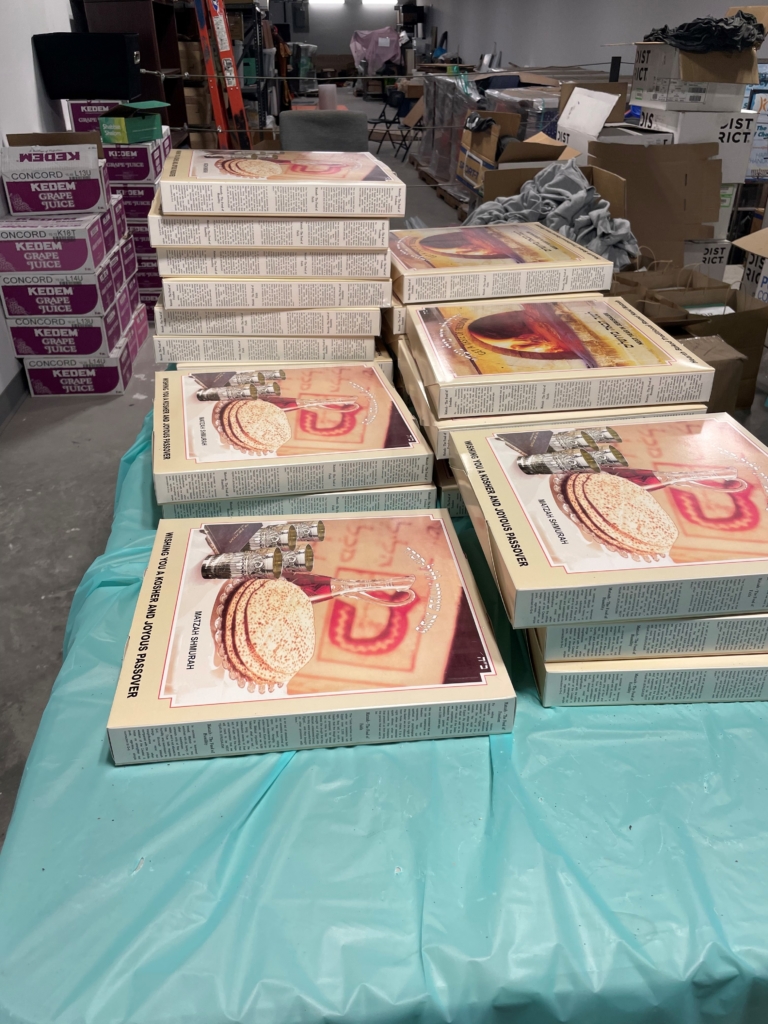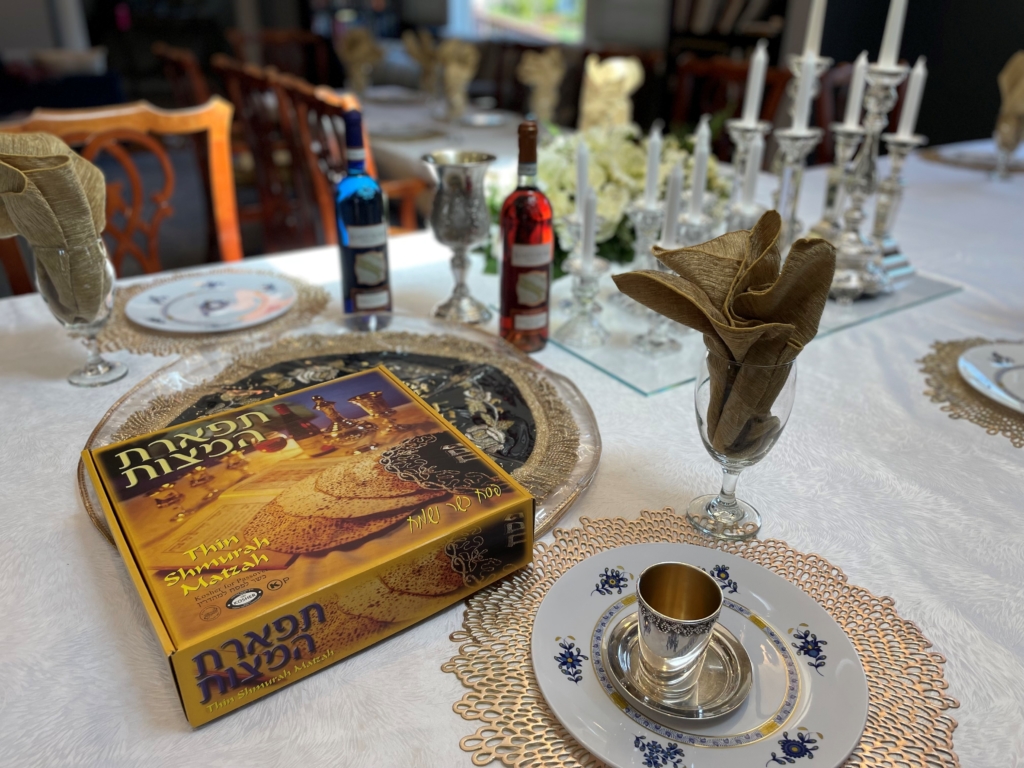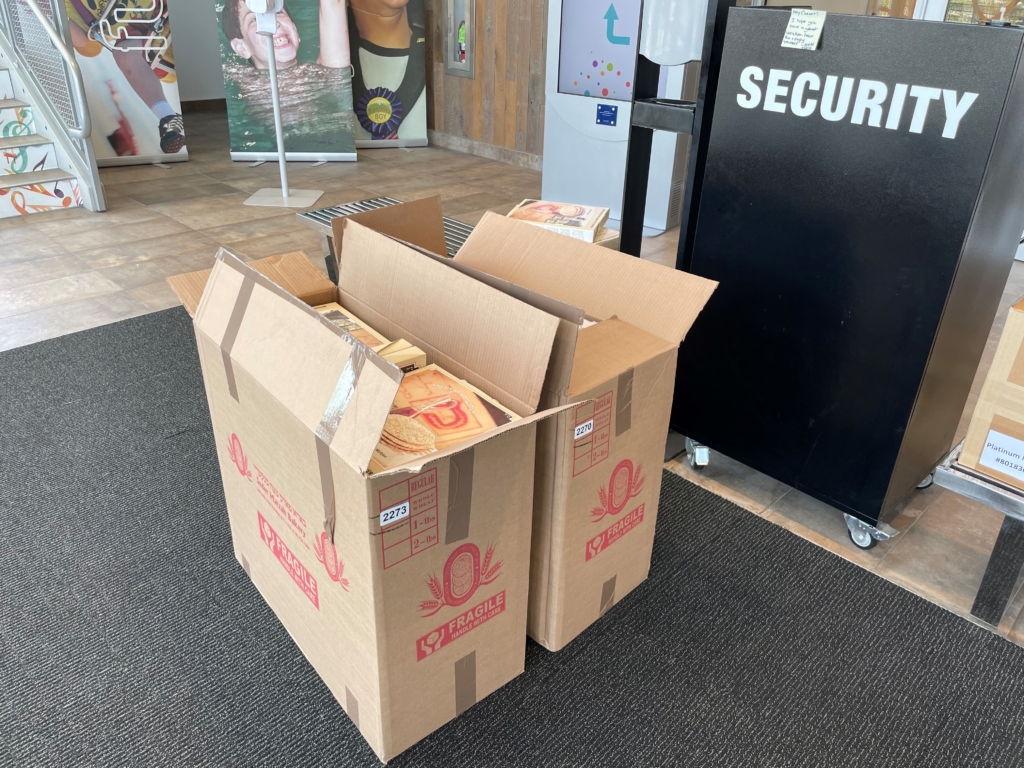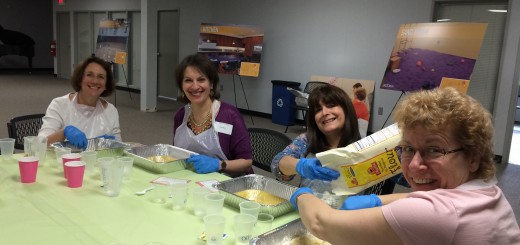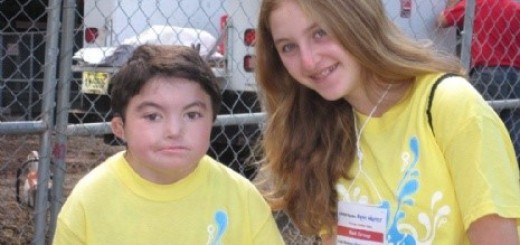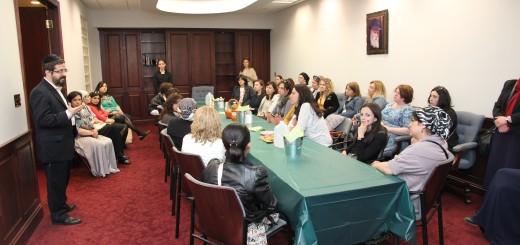Seder-to-Go with a Side of Shmura Matza
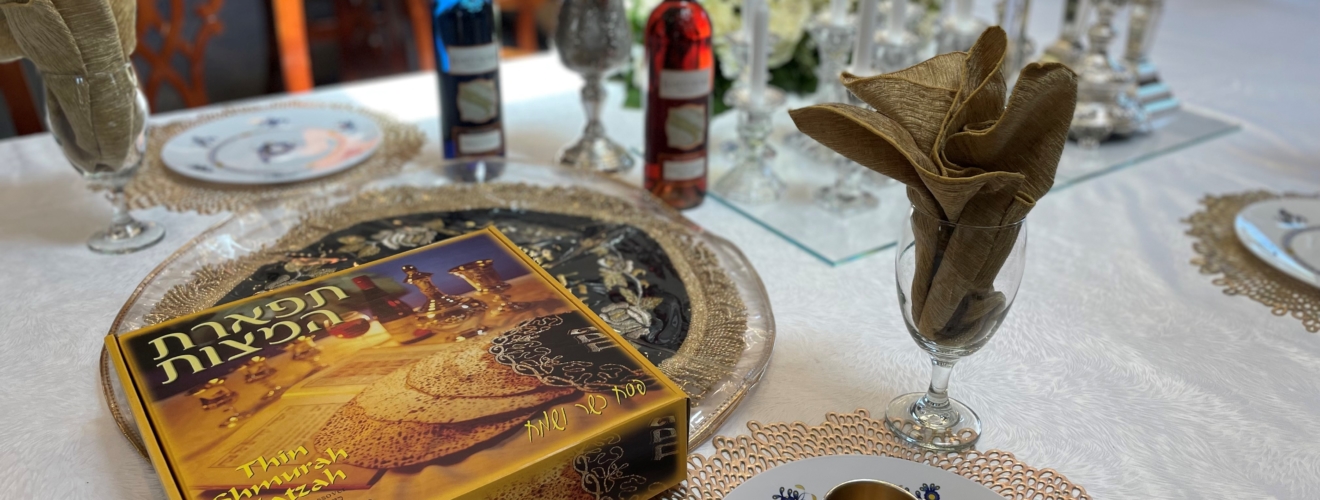
Getting ready for Passover may not be a day at the beach, but Friendship Circle made it just a little easier this year. “The hardest part of getting ready for Passover is managing all the details,” said Toba Grossbaum, FCNJ Executive Director. Getting the table ready for a seder includes not only the usual place settings for guests, but also all the ritual items required, from salt water for dipping to the shank bone on the seder plate to the matza that takes center stage.
This year, FCNJ provided “seder-to-go” kits and plenty of shmura matza for the community.
The kits include all the essentials for a seder including the seder plate with all the fixings (egg, shank bone, horseradish, romaine lettuce, charoset, and vegetable), a bottle of wine, matza, a seder guide, a haggadah in Hebrew and English, a candle lighting kit, and some playful odds and ends including a card game. The kits were previously used mainly in hospital settings and in isolated places where Passover supplies are not readily available; during the pandemic, however, they were distributed more widely to family members separated from one another, trying to hold seders for the first time.
LifeTown served as shmura matza central, one of the key locations providing it to the community this year. It was available in one-pound boxes for advance order, as well as in packages of three and even single rounds by request. Shmura matza is distinguished from other store-bought matza because it is watched or guarded from the moment the wheat is cut in the field. “Shmura” means “watched” or “guarded.” It is also made by hand rather than by machine. Kabbalistic tradition considers hand-made shmura matzah, when eaten on Passover, to be food of faith and healing.
About 150 families took advantage of the seder-to-go kits and three hundred more received packages of shmura matza.
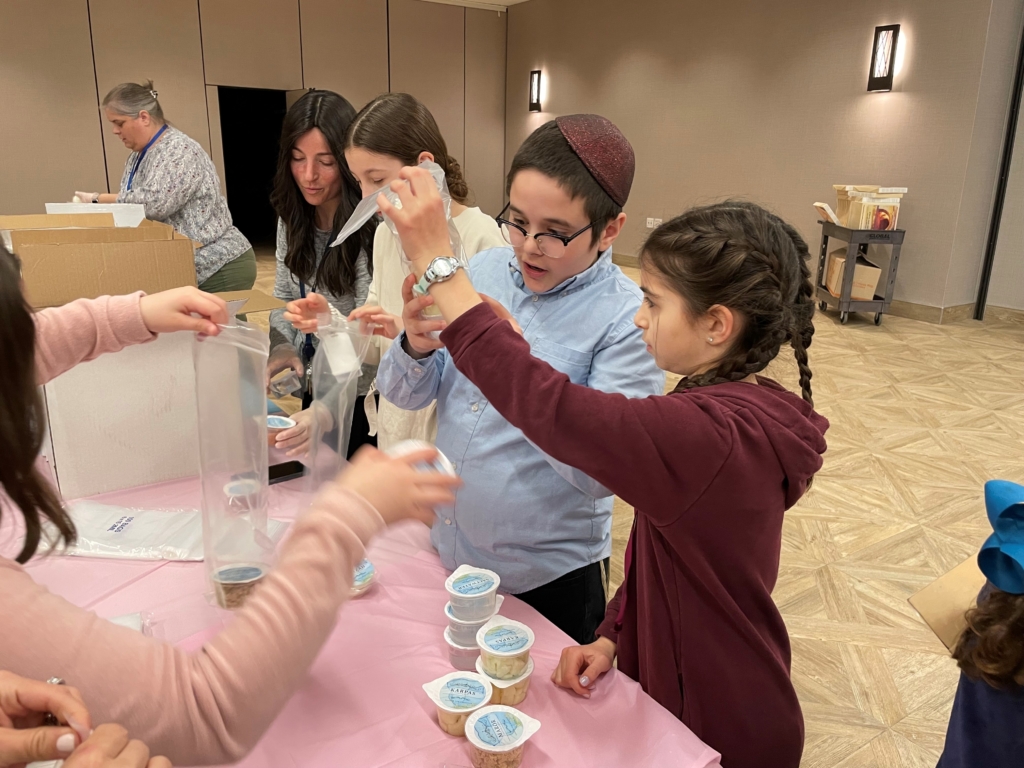
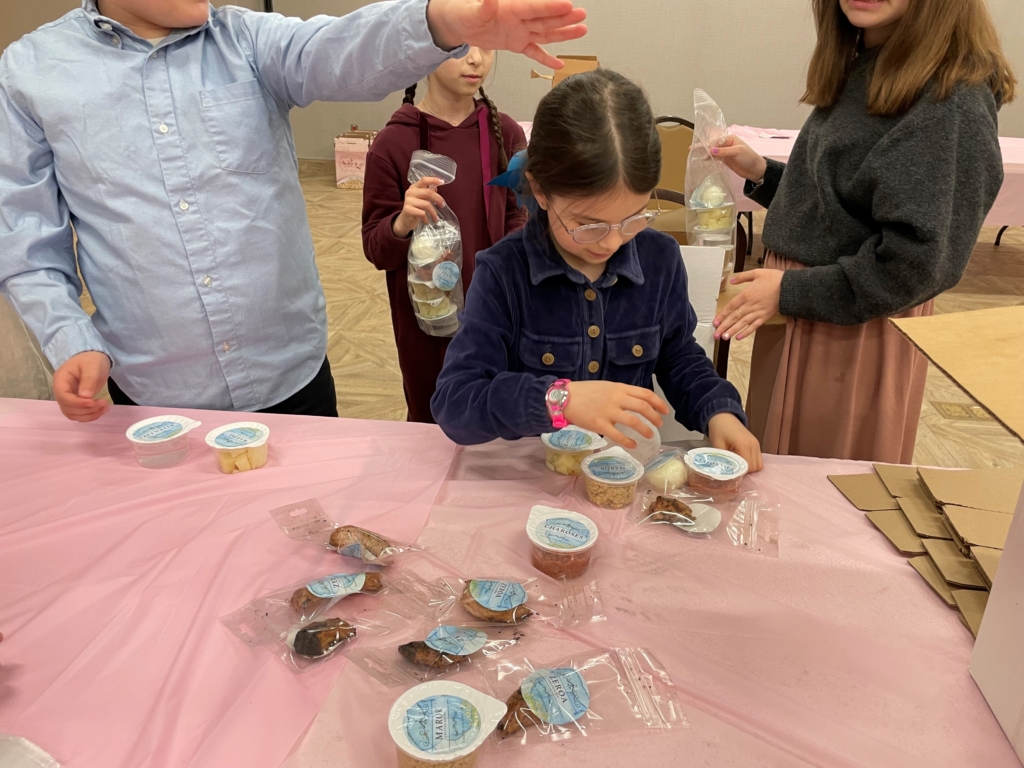
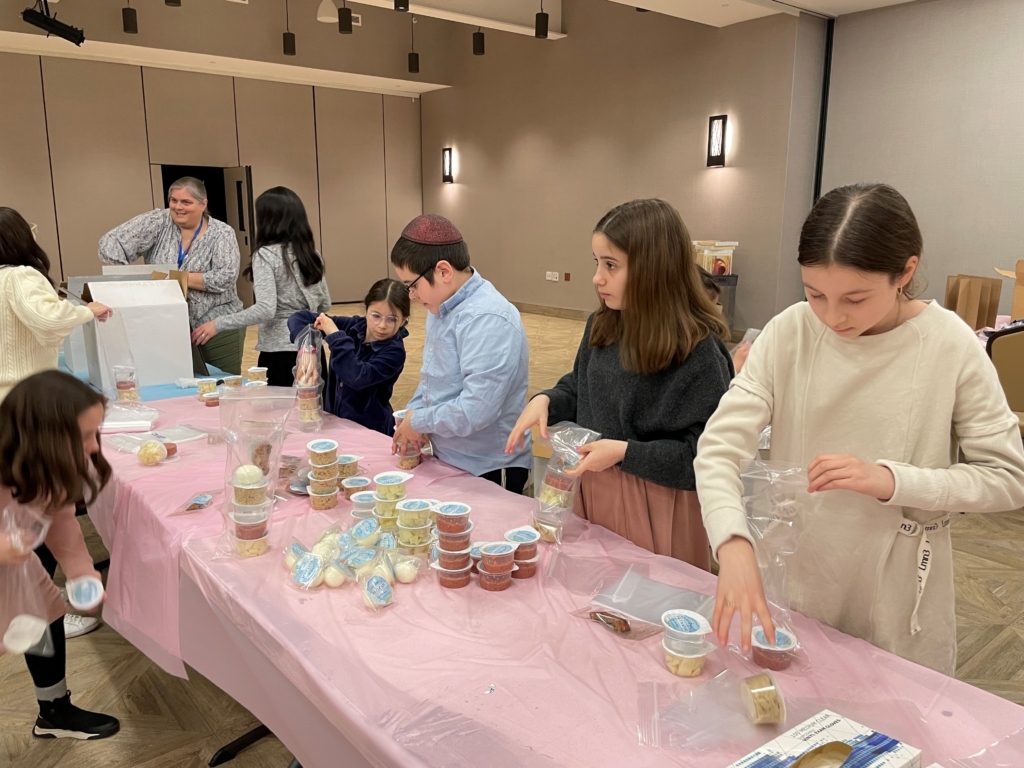
“The kits really helped people during the pandemic when they couldn’t be together for Passover but still wanted to have a seder,” said Rabbi Grossbaum. “This year, we realize the kits are also a way to make hosting a seder so much easier for anyone.” Seder kits and shmura matza were also delivered to all the local hospitals.
Families who used the kits pointed out that they not only made preparation easier and took some of the stress out of hosting and leading a seder, they were also a source of fun –the card game enhanced seders with thought-provoking questions to share across generations, like, “If you could time travel to another period in Jewish history, whose seder would you visit?”
Right up until the start of the festival, the Grossbaums were distributing packages of shmura matza. “Sometimes a simple gesture goes such a long way,” said Rabbi Grossbaum. “We are so happy to help people in the community with this important part of the Passover celebration.”
Let All Who Are Hungry Come and Eat
Famously we say at the seder, “Let all who are hungry come and eat,” issuing an invitation to anyone who needs a meal. FCNJ made the invitation real, sending out an open invitation (by email, not just by opening the door and calling out) to anyone without a seder in the days preceding Passover. Smiling widely, Toba Grossbaum said, “People did take us up on the invitation!” In fact, over thirty families accepted the invitation and joined the Grossbaum seder. “We were thrilled to be able to bring more people to the seder who would not otherwise have attended one,” she said.
This year’s Seder included special Shmurah Matzah baked at the Chabad Matzah Bakery in Dnipro, Ukraine. Extra seats at the Seder table were filled with guests in honor of the refugees from Ukraine who could not have their regular Passover Seder.
